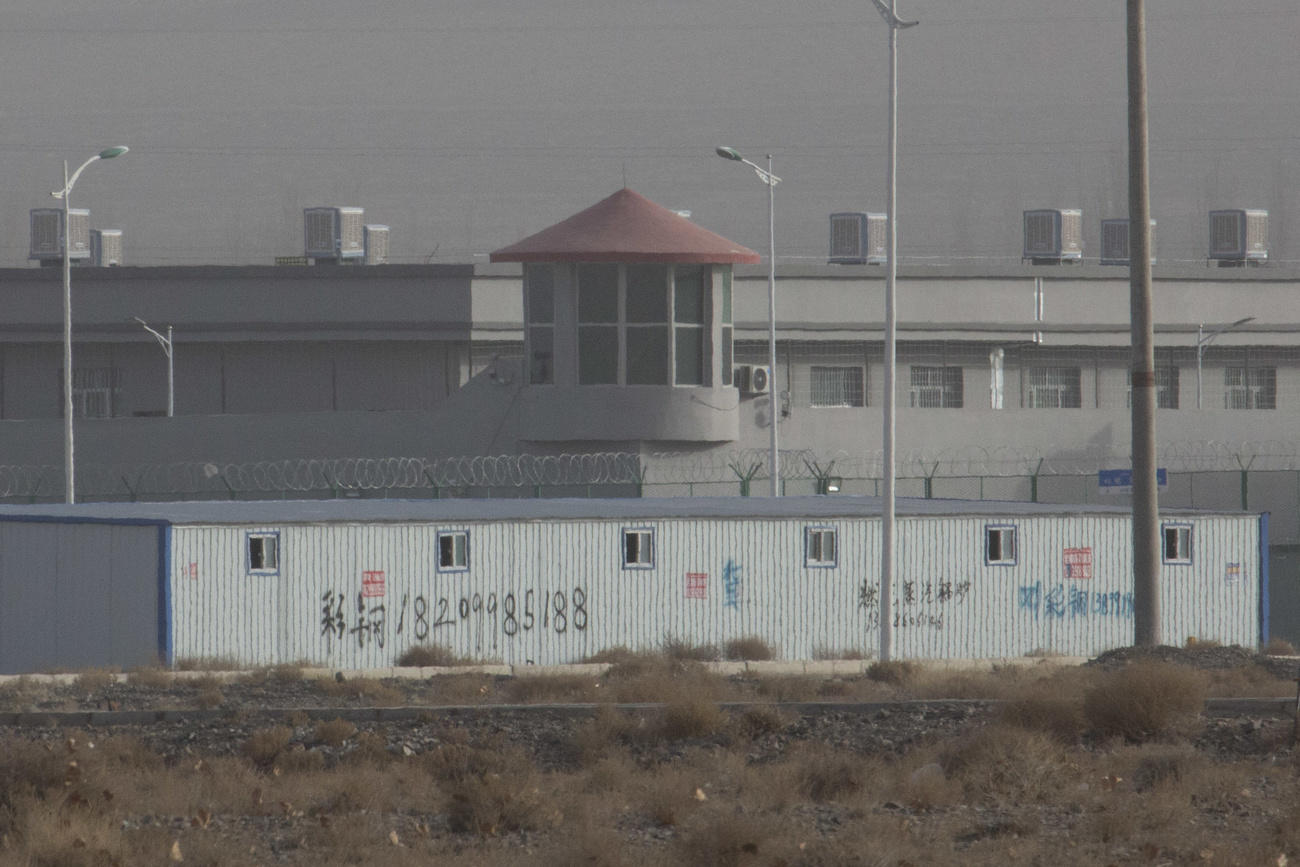
Uighur exile leader calls on Switzerland to curb China ties

A prominent exiled Uighur rights advocate is in Switzerland to ask the Swiss government and business leaders to reconsider their close ties to China.
“The time for expressions of concern is over,” said Dolkun Isa, the president of the World Uighur Congress, in an interview with swissinfo.ch in Geneva. The exile group says it campaigns for self-determination. Chinese government representatives have previously denounced members of the group as terrorists and criminals.
Isa’s visit comes amid growing criticism globally, including in Switzerland, over a Chinese government program that has led to the largescale internment of members of the Uighur ethnic minority in western China.
Research by journalists, academics and human rights advocates suggests that around a million people, mostly Uighurs, have been swept up by the program. The government in Beijing has defended the program as a mass training campaign aimed at lifting the ethnic group out of poverty and fighting terror.

Isa meets representatives of the Swiss foreign ministry on Thursday. Ahead of the meeting, he called on Switzerland to take concrete action, using its extensive commercial ties with China to end the program.
On Tuesday, the Swiss foreign ministry issued a statement calling on China to heed the concerns expressed by various countries including the US, UK and Germany and allow United Nations observers “unimpeded access” to inspect the camps.
But Isa, who was born in China but left the country in 1994, told swissinfo.ch that the situation in Xinjiang has moved beyond diplomatic pressure and inspection visits. Switzerland “needs to stop doing business with China,” he said.
Isa requests Switzerland to consider imposing economic sanctions similar to those put in place by the United States against some Chinese surveillance companies earlier this year. But judging by precedent, that request is unlikely to gain much favour in Bern.
China is Switzerland’s third-largest trading partner accounting for about 10% of total exports from Switzerland. Switzerland was the first country to sign a free trade agreement with China.
The Swiss government has also been an outspoken supporter of the Belt and Road Initiative. It is a major Chinese government-sponsored infrastructure and investment project that crosses through Xinjiang, a western Chinese region where many Uighurs live.
Several major Switzerland-based companies operate in Xinjiang, according to researchExternal link released this summer by the Mercator Institute for China Studies.
The Berlin-based think tank named the Swiss industrial giant ABB which has been building power lines to transmit electricity from the region to eastern China.
A company spokesperson told swissinfo.ch that of the more than 20,000 employees in China less than 30 worked in Xinjiang. It also said that it was actively monitoring the situation there and was committed to the respect of human rights.
A spokesperson for Nestlé, another company named by the think tank reportExternal link, denied that it had sourced produce or manufactured in the region.
Isa said that he recognized that Xinjiang benefitted from foreign investment. Yet, he called on companies operating there to reconsider their operations nonetheless there and elsewhere in China to pressure Beijing into changing its mass detention program.
“If you continue doing business with China, it is like you are a partner in human rights violations,” Isa said. “It sends the wrong message to China.”

More
Switzerland joins calls demanding closure of Uighur camps

In compliance with the JTI standards
More: SWI swissinfo.ch certified by the Journalism Trust Initiative


























You can find an overview of ongoing debates with our journalists here . Please join us!
If you want to start a conversation about a topic raised in this article or want to report factual errors, email us at english@swissinfo.ch.